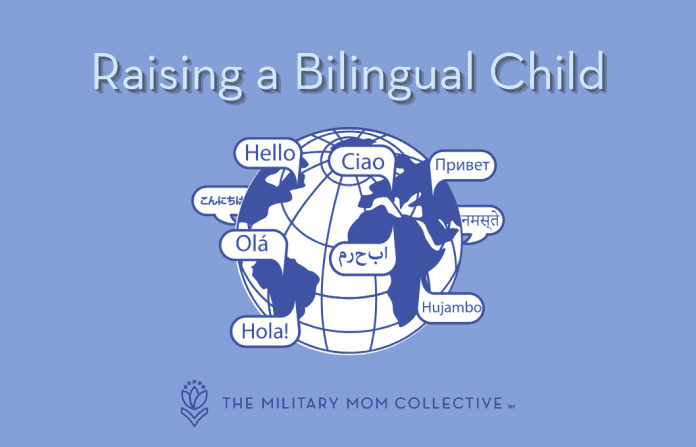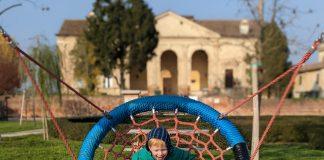As a foreign parent raising a bilingual child, sometimes it feels like fighting with a giant that, no matter what you do, tends to win each battle.
The influence of a culture accompanied by its language is so strong that trying to teach and maintain a second language is a challenge.
Before my daughter was born, my husband and I made the commitment of raising our child bilingual. She was born in the United States, so it was natural that she was going to be exposed to English in every aspect of her life on a daily basis. But my native language is Spanish, and my husband is fluent in the language as well. We decided that at home, we were going to maintain Spanish as the family language.
When we decided to speak Spanish at home, we knew there would be challenges.
What keeps us going is that both my husband and I are on the same page. We are determined to work as a team to raise our daughter bilingual. At home, we speak Spanish as a family. When my daughter is speaking one-on-one with my husband and if I’m not present, they speak in English. When we visit my family, we all speak Spanish; when we visit my in-laws in America, we all speak English. Our daughter will attend a bilingual (Spanish-English) school whenever possible.
There are some difficulties that we may run into on the path to raise a bilingual child.
Sometimes the commitment could be there, but different family dynamics may interfere in the process. It is understandable that adopting a second language as a family language is not always possible, especially when one of the parents does not speak the other language. The bilingual parent, however, can still expose the child to the second language through reading, videos, and speaking to the child in the second language as much as possible. Of course, there is always the option of the other parent to try to learn a second language along with the kids. Maybe not too realistic in this busy world, but it’s never too late to learn! And it will definitely set an example for the kids.
Even though I was determined to raise my daughter bilingual, I did have some worries.
I worried that it was going to be confusing for her. I worried that she was going to be a bit behind in English compared to her peers in school. That did happen when she was in pre-K because Spanish was her stronger language at that time. She definitely communicated better in Spanish, but we realized that she gradually caught up with English just fine.
I had also heard that sometimes parents feel hesitant to pass on their language because of fears that their children will develop a foreign accent in English while simultaneously learning a second language. I worried about how sometimes speaking with an accent can cause others to develop stereotypes, and I did not want that for my child. But we thought that by taking advantage of the opportunity to expose her to English and Spanish at such an early age, she would have to speak both languages as proficiently as possible regardless of an accent or not. A study at MIT showed that the optimum time to learn a new language is before age 10. This is one of many studies supporting early exposure to a second language!
As my daughter grows older, it seems that the process gets trickier. Now the issue is how to avoid speaking “Spanglish.” I admit that we are all to blame! Sometimes words come up easier in one language than in the other. Kids make a habit of mixing both languages, and sometimes parents give in to that habit, especially when everyone is rushing during the day-to-day responsibilities. The most important thing for us has been to be flexible but consistent with our plan. We focus on the awareness of speaking one language at a time without mixing them.
Raising a bilingual child is not always easy, and it can be discouraging at times.
Don’t give up. It is possible. All worries are valid, and that is why sharing our experiences as bilingual parents is important. We can learn from each other. I truly believe that any effort to pass on a second or even a third language to our kids is one of the best gifts we give them for life.











